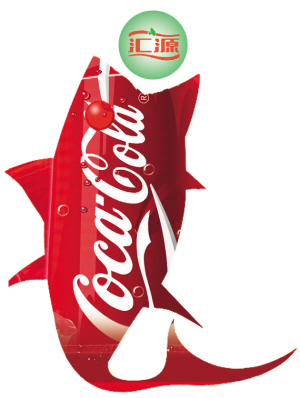By Zhou Jing
The proposed sale of China juice company Huiyuan to Coca-Cola has caused an outcry among both pundits and the public. Coca-Cola, no slouch in public relations, is fighting back and some have even accused the company of trying to suppress opinions unfavorable to the merger, according to an inside source quoted in the Beijing Morning Post on September 7, 2008.

On September 5, Qian Weiqing, a lawyer at the Dacheng Law firm, was invited to participate in an online discussion about the proposed takeover. He said that given the state of public opinion and the provisions of the Anti-Monopoly Law, "the prospects for the purchase do not look optimistic," adding that "public opinion has taken a nationalistic turn on the issue, and is likely to directly or indirectly influence the regulator's decision," and that consequently "the bid will have a tough ride at the Ministry of Commerce."
The insider said that soon after the interview, Coca Cola called the Dacheng Law, demanding Qian withdraw his comments, adding pointedly that Coca Cola employed many of Dacheng's lawyers as counselors. "Which is more important, just think it over!" was the gist of Coca Cola's message – according to the source.
A few hours later, Qian announced that he had withdrawn his comments.
When Qian was interviewed again on September 7, he refused to say anything about the Coca-Cola purchase.
The source said Coca-Cola was apparently trying to "manipulate public opinion." Reporters from the Beijing Morning Post also noticed that some websites had begun to drop views opposing the takeover. The previous broad-based discussion was turning into a one-sided chorus of cheerleaders taking the line that "the purchase will bring huge benefits."
The insider was also dubious about Huiyuan President Zhu Xinli's cryptic declaration on September 7, that "A company should be brought like a child and sold as a pig. We should approach the sale rationally." The insider said he used to negotiate with Zhu and knew him well and the statement did not sound like Zhu's usual working or speaking style.
A public relations manager said it was only to be expected that the anti-voices will influence the regulator's decision. He said Coca Cola's alleged behavior fitted in with the company's style.
He added though, that while opposing voices could be suppressed, opposition was not going to disappear. A group of soft drinks enterprises recently met to discuss sending a joint letter to the Ministry of Commerce to object the Huiyuan purchase on the grounds that it would give Coca-Cola half the Chinese market and leave no space for the competition.
An alternative proposal being touted is that Huiyuan should be split up and its brand and assets auctioned separately, with domestic enterprises being given rights to bid for them. One beverage industry manager said, "If Huiyuan is swallowed up, we'll all soon be in the same boat."
Coca Cola announced on September 3 that it had offered to buy China Huiyuan Juice Group Limited, a Hong Kong-listed company that owns the Huiyuan juice business throughout China, for the equivalent of 2.4 billion US dollars in cash, in what would be the second-largest acquisition in the US company's history.
Three major shareholders of Huiyuan are reported to have accepted the offer. They hold approximately 66 percent of the Huiyuan shares. But the offer must be approved by China's Ministry of Commerce according to the newly-enacted Anti-Monopoly Law.
(China.org.cn September 9, 2008)